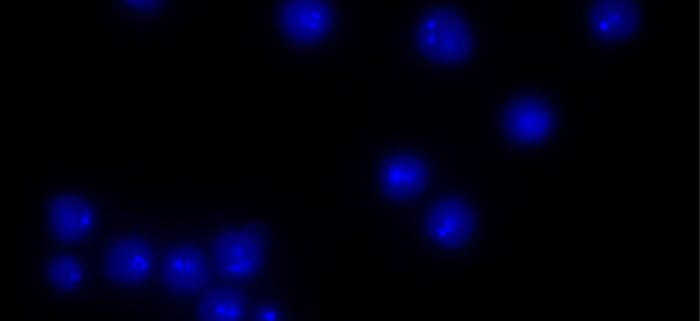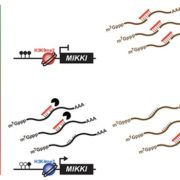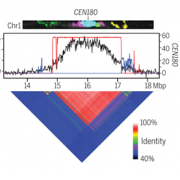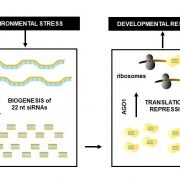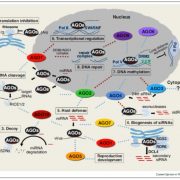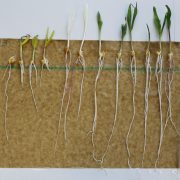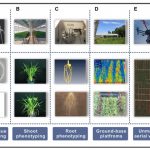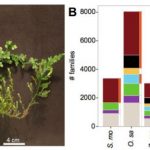Silencing Transposons is Important for Pollen Development in Capsella
Wang et al. reveal that viable pollen formation in Capsella requires the function of a DNA-dependent RNA polymerase. Plant Cell https://doi.org/10.1105/tpc.19.00938
Background: Transposons, or “jumping genes”, are kept silent by a plant-specific pathway that starts with DNA-dependent RNA polymerase IV (in short Pol IV), which recognizes and transcribes transposons. These transcripts are converted into small RNA molecules, which recruit epigenetic silencing machineries to transposons and confer stable silencing by modifying DNA. Surprisingly, in Arabidopsis thaliana, the workhorse of plant genetics, the loss of this pathway has no obvious phenotypic consequences. However, in species such as Brassica rapa and tomato, which have a substantially higher transposon load, the loss of this pathway causes reproductive abnormalities.
Question: We aimed to test whether the loss of Pol IV in the Brassicaceae species Capsella rubella causes similar reproductive defects to those reported in Brassica rapa. Capsella rubella is closely related to Arabidopsis thaliana but has maintained a higher number of transposons compared to Arabidopsis.
Findings: The loss of Pol IV function in Capsella causes male sterility, with pollen grains arresting their development after meiosis. This differs from phenotypic defects described in Brassica, revealing that there are species-specific reproductive defects caused by impaired transposon silencing. Strikingly though, we also found maternal seed defects that closely resembled those found in Brassica, indicating that this silencing pathway has a conserved functional role in seed development.
Next steps: We would like to understand the role of Pol IV in pollen development by characterizing when, where, and how the loss-of-function of Pol IV can lead to pollen arrest.
Zhenxing Wang, Nicolas Butel, Juan Santos-González, Filipe Borges, Jun Yi, Robert A. Martienssen, German Martinez, Claudia Köhler. (2020). Polymerase IV Plays a Crucial Role in Pollen Development in Capsella. Plant Cell; DOI: https://doi.org/10.1105/tpc.19.00938


